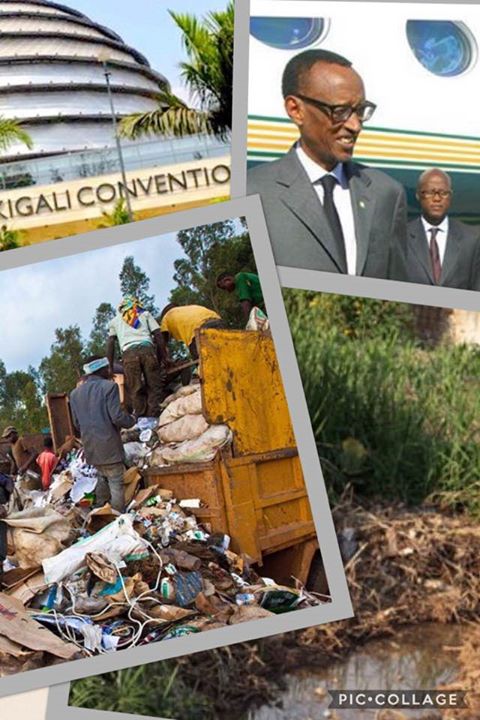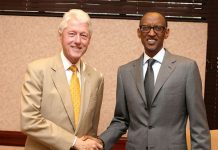In today’s headline news (January 22, 2017), the Rwandan ruling party newspaper, the New Times, exposes the environmental disaster unfolding in Rwanda. The newspaper reports that the “waste dumping continues to be the biggest challenge” and that “people have turned marshlands into waste dumping sites.”
As I often write, Rwandan water resources are subjected to heavy pollution leading to untold damage to especially children’s health. Untreated domestic and industrial waste – including solid waste – are directly deposited into the water systems that comprise the Gikondo, Nyabugogo and Nyabarongo marshlands in and beyond Kigali.
The main problem is that Kigali with its over one million people does not have a sewage system. Homeowners, commercial businesses, and industry use all kinds of shortcuts to get rid of raw sewage. The rainy season becomes a real nightmare. Raw sewage from households, garages, restaurants, hotels, prisons, hospitals, schools, and other businesses is discharged into open sewers and sceptic tanks that dump into the marshlands.
Meanwhile President Paul Kagame is jetting across the globe – boasting about how he has turned Kigali into a global tourism hub. He of course flies in a US$60 million Gulfstream executive jet. He just completed his Kigali Convention Centre, which, together with Rwandair consumed much the US$400 million Eurobond. Kigali City is said to be Africa’s cleanest urban centre. But unknown to international visitors, Kigali remains a city of latrines, open sewers, and raw sewage that is dumped into swamps, streams, and rivers. I often liken Kagame’s approach to beautifying Kigali to a smart dresser with a dirty underwear.
Sadly, we recall that back in 2014, the Kagame regime made noise about the Mott MacDonald Group, a British consulting firm company that was to design Kigali’s sewage and treatment plants. Evidently the regime forgot about this.
Thankfully, Kagame’s own newspaper, the New Times just re-exposed the rotten underbelly of Kigali. Perhaps the Rwandan ruler might be shamed into saving Rwandan rivers and wetlands which are, without doubt, lifelines of the country and region.
David Himbara
































































